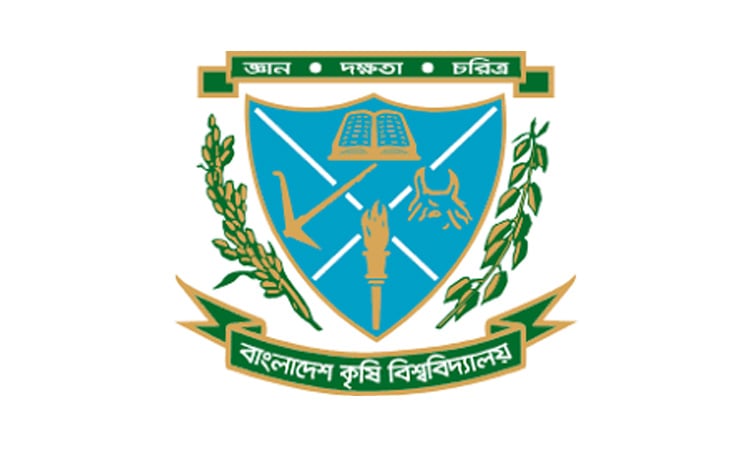News Flash
News Flash

MYMENSINGH, Sept 11, 2025 (BSS) - Al Momen Pranta, a postgraduate student at Bangladesh Agricultural University (BAU), has developed a low-cost, AI-
powered system to combat heat stress in livestock and poultry farms.
The innovation uses real-time data from environmental sensors and IoT
(Internet of Things) technology to monitor temperature and humidity, helping
to protect animal welfare and boost farm productivity
The problem of heat stress has become more acute due to sudden changes in
climate and most of the farms do not have any modern system that will inform
in advance that the animal is at risk.
The young researcher has created a new path of possibility to turn the plan
of this modern system into reality.
Pranta, a postgraduate student of the Department of Animal Science of BAU,
has found a solution to this crisis using edge technology.
Professor Rakibul Islam Khan of the Department of Animal Science has guided
his research. In addition, Assistant Prof SM Ariful Islam of the Department
has helped implement the technology in the university's internal farm.
The research team has invented an automatic "Sensor-based Artificial
Intelligence (AI)-based Farm Monitoring and Heat Stress Management
Technology".
Regarding the invented technology, Pranta said it (Sensor-based Artificial
Intelligence-based Farm Monitoring and Heat Stress Management Technology) is
an automatic decision-making technology.
Through this technology, sensors installed on the farm collect temperature
and humidity data at regular intervals and send it to a cloud platform via
the internet.
This information is then sent to an artificial intelligence-based analysis
model. The task of the analysis model is to calculate the Temperature-
Humidity-Index (THI). THI is a number that takes into account both
temperature and humidity and indicates how the animal's body is feeling.
Through this, the model indicates the condition of the animal in four stages-
- 'safe', 'alert', 'risky' or 'highly risky'.
Based on the condition of the animal, the model automatically turns on or off
the fan.
The farmer does not have to be physically present to operate the fan. AI
decides when the fan will turn on and when to turn off.
With the help of artificial intelligence (AI), there is a system to
automatically publish a summary of the decisions made by analyzing all this
environmental data on a website.
The information is stored on the website so that farmers can see at any time
what level their animals are at and when to take necessary action.
Researcher Pranta said the most important aspect of this entire system is
that it costs only Taka 2,500 to launch for the first time. Later, the cost
of cloud and servicing will be about Taka 1,000 per year, he added.
Once launched, it will run for the next seven days without any human
intervention.
Farmers will only see the status of the animals on the website and take
timely action. This will be a low-cost and user-friendly solution for
farmers.
Highlighting the impact of heat stress on animals worldwide, Pranta said,
"Various studies from around the world say that by the end of the 21st
century, the loss due to heat stress in livestock could reach billions of
dollars. Many dairy farms in regions like Africa and America have faced
significant shortages in milk production due to heat stress. According to
information published in various research journals, the annual economic loss
due to this problem worldwide could be about 40 billion US dollars. About 20
percent of the livestock-related areas in East Africa are at the highest risk
of falling into this crisis. Even the dairy industry of developed countries
like the United States may face losses of more than one and a half billion
dollars a year in the future."
Against this backdrop, the development of such an automated system is not
only timely but also exemplary at the global level, he continued.
Currently, the technology is ready for field application. He said that a
research article will be submitted to an international scientific journal
with the research results soon.
Regarding the potential of the technology, Prof Dr. Rakibul Islam Khan said,
"This technology is not just an innovation, it is an important step in farm
management. Through this, the farmer's labor will be reduced, costs will be
reduced, and electricity will be saved with proper use. The complications
caused by heat stress in the animal's body due to lack of information,
negligence or delay can be controlled in advance through this technology. We
are very optimistic about the effective future of the technology."
However, the research does not stop here.
Researcher Al Momen Pranta said that the future of research is broader.
Ammonia, methane, and carbon dioxide sensors will be added to it in the
future. Then the animal's breathing and environmental quality can also be
analyzed, he said, adding: "Gradually, this can take the form of a completely
artificial intelligence-based precision livestock farming system."
Pranta wants no farmer to be helpless anymore. "Farmers should no longer have
to worry about cow disease or death due to heat. They should be able to know
the condition of the cow in advance and take necessary measures. He wants to
change the picture of the country's farms by using affordable technology," he
added.